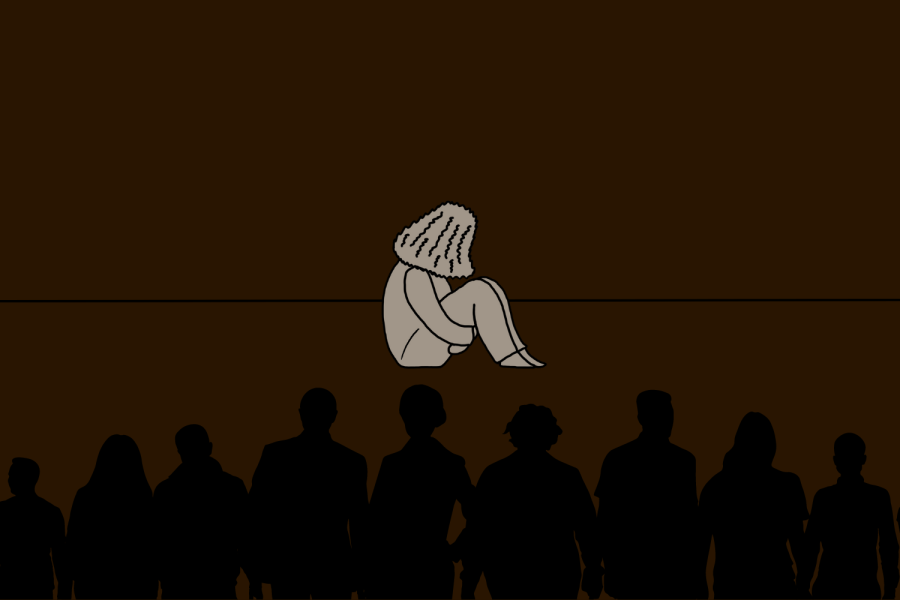Education Secretary Betsy DeVos recently released her proposed changes to Title IX, the federal law prohibiting discrimination on the basis of sex that dictates how sexual harassment and assault grievances are processed, especially on college campuses. In justifying the proposed changes, DeVos said, “We can, and must, condemn sexual violence and punish those who perpetrate it, while ensuring a fair grievance process. Those are not mutually exclusive ideas.” Indeed, they are not. However, DeVos is seeking to change the investigation process to shield the accused and the universities at the expense of victims.
proposed changes make things easier for the accused and make it more difficult for victims to get redress.
One of the most troubling alterations would allow the accused to cross-examine the victim. Along with potentially re-traumatizing the victim, the cross-examiner would also now, under certain circumstances, be allowed to consider evidence about the victim’s sexual history. This opens the door for defense lawyers to slut-shame their clients out of guilt, allowing them to project the blame for assault and harassment onto the victim. As Cara Tuttle-Bell, the Director of Project Safe, has said, the prospect of a brutal re-opening of wounds could have a silencing effect on survivors. Cross-examinations bolster the prospects of the accused at the expense of the victims.
Other proposed changes make things easier for the accused and make it more difficult for victims to get redress. Colleges would now be allowed to adopt a higher standard of proof to enact punishment on the accused: “clear and convincing evidence.” The guidance under the Obama-era guidelines required a “preponderance of evidence.” Considering sexual harassments are deeply personal and intimate acts, the complainant would be hard-pressed to demonstrate with that the act occurred with such a high level of certainty. The accused may be able to hide behind this barrier of certainty.
The changes also allow universities to shield themselves from liability. DeVos is seeking to shift the definition of sexual harassment from “unwelcome conduct of a sexual nature” to “unwelcome conduct on the basis of sex that is so severe, pervasive and objectively offensive that it denies a person access to the school’s education program or activity.” By raising the threshold of what constitutes sexual harassment, the door is open for schools to avoid investigating cases that don’t “meet the standard.” Additionally, the proposed changes only require universities to investigate complaints that occur on campus or at an institutional facility. This guards them from responsibility concerning complaints that occur off-campus. This would mean that Vanderbilt would have no responsibility to investigate an assault that occurred at the Wesley or Aertson Apartments.
The proposed changes also dictate that a university is only obligated to handle cases that have been formally reported to an individual who has the power to remedy the situation. This means that the university would not necessarily need to address instances of sexual misconduct reported to Vanderbilt’s many mandatory reporters, like professors and RAs. Instead, the rules appear to mandate that the victim must go to the Title IX coordinator to report what happened to them, if they want to see any sort of justice. In the past, the Hustler has reported that interactions with the Title IX office for students reporting their crimes have been stiff, almost cold, because the Title IX coordinator is required to remain objective in their assessment of an accusation. This means that the people an individual may trust enough to divulge sensitive information to (people like professors and RAs who are allowed to show support for the victim) are not in a position to help that student by reporting their experience. Even if students chose not to pursue full investigations, mandatory reporting helped the Title IX office establish patterns of behavior if multiple reports were made about the same students or pervasive threats. With these changes, it appears that the university will have no incentive to continue the practice in which nearly every faculty member serves as a mandatory reporter, simply because they are under no obligation to address what a mandatory reporter brings to them. Why train people to be mandatory reporters if you don’t have to listen to them? It is unclear what will happen to the status of mandatory reporters should these changes pass, but it certainly will alter the support and comfort that students may have developed in being able to talk to their RAs or professors. Now, students do not know if their report would at the very least be listened to by the administration.
Should the regulations pass, it must not take advantage of the decreased responsibilities afforded to it.
Throughout all of this, Vanderbilt students cannot be certain that their school is on their side. A New York Times opinion article claimed that Vanderbilt spent tens of thousands of dollars lobbying the Trump administration for more lenient Title IX regulations. The claim was supported by a House of Representatives lobbying report which shows Vanderbilt lobbied around activities related to Title IX. However, the report does not specify the nature of Vanderbilt’s lobbying. Administration denied lobbying in favor of friendly regulations and contacted the New York Times. In response, the Times which issued a correction stating that the lobbying report did not specify what stance the university took on the regulations. Additionally, administration officials have denied lobbying for friendly regulations. Regardless, Vanderbilt needs to re-establish the credibility of its commitment to survivors.
In order to regain this trust, Vanderbilt must take steps to reaffirm its commitment to survivors. It must not allow for re-traumatization and slut-shaming through cross-examinations. Should the regulations pass, it must not take advantage of the decreased responsibilities afforded to it. It must not adopt the higher standard of proof. It must recognize that all sexual harassment meets the definition DeVos has conjured up. It must not turn a blind eye to complaints coming from their students just because it happened in an apartment and not a dorm. It cannot eschew the mandatory reporter system that has helped students find comfort and safety while reporting.
If Vanderbilt upholds its proclaimed devotion to helping survivors, it will foster an environment in which survivors won’t be discouraged from coming forward, from baring their wounds and seeking redress. But if it does not, survivors may feel that they will not be heard, that they will not be believed. While Vanderbilt officials spend the next few weeks determining what these regulations, we implore them to continue a mission they’ve made a priority over the last few years. The opening of Project Safe, the separation of the Title IX department into its own office were strong steps, but with hundreds of reported incidents of misconduct every year, Vanderbilt still has a long way to go.






BethAnn McLaughlin, PhD • Jan 13, 2019 at 8:48 pm CST
Rafael, The US government only gives one system of justice to victims of sexual violence on campus. That system is Title IX. Unlike a criminal hearing, you get no lawyer and the Title IX representatives sit with the defendant in civil proceedings. There is no way to ensure that people who participate in good faith aren’t retaliated against. In fact, most people who do participate report being more victimized by Title IX than the actions against the. Title IX is about establishing the truth when applied fairly.
Rafael M Levin • Feb 8, 2019 at 12:39 pm CST
Thank you BethAnn for replying. I completely understand that Title IX is essential to providing victims of sexual assault the process and justice they deserve and I wholeheartedly agree with Title IX’s stated mission. However, the article’s position on the issue is that “they must not adopt the higher standard of proof” which I find to be terrifying as a male college student. In the current political and college campus climate, if someone is accused of sexual assault they simply don’t receive a fair process. They lack representation, the assumption of innocence until proven otherwise and the weight of word. If a male is accused of sexual assault and it comes down squarely to testimony, they’ll lose almost every time although no proof was presented. Although I believe in a victim’s right to justice, I just don’t feel that it is in any way just for a system to have no safeguards against ruining someone’s life and career on the basis of “he said, she said.”
Rafael M Levin • Dec 3, 2018 at 11:55 am CST
Wholy one sided. This is the most typical college article I’ve ever seen lol. What happened to innocent until proven guilty?